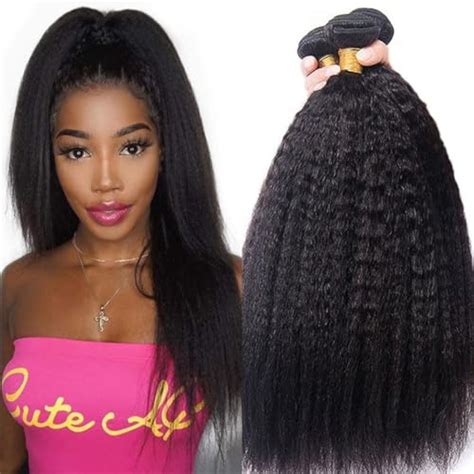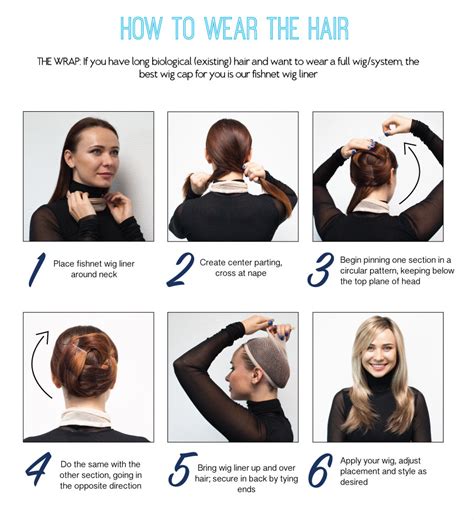From the dawn of civilization, humans have sought ways to enhance their appearance, and hair has always played a pivotal role. Wigs, as artificial hairpieces, have evolved over centuries to meet this enduring desire. From ancient Egyptians’ ceremonial headpieces to modern-day fashion statements, wigs have become an integral part of our cultural fabric.

Dramatic Transformation with Wigs
Wigs offer transformative capabilities, allowing individuals to express their creativity, conceal hair loss, and embrace new identities. They can instantly change one’s appearance, creating a striking or subtle enhancement. Whether for a special occasion, confidence boost, or personal expression, wigs empower wearers to explore different looks and embrace their individuality.
According to a study by the International Hair Council, the global wig market is projected to reach $17.9 billion by 2026, indicating the growing popularity and demand for these versatile hairpieces.
The Science Behind Wigs
The foundation of a wig lies in its construction. Wigs are typically made from human hair, synthetic fibers, or a combination of both. The choice of material influences the wig’s texture, durability, and comfort.
Human Hair Wigs:
- Natural appearance
- Soft and silky to the touch
- Require special care and styling
Synthetic Fiber Wigs:
- Affordable and versatile
- Heat-resistant and can be styled with heat tools
- Can have a shiny or artificial appearance
Hybrid Wigs:
- Combine the best of both worlds
- Offer a natural look with added durability
Versatility and Applications
Wigs transcend fashion and have found practical and therapeutic applications in various fields:
Medical Applications:
- Concealing hair loss due to cancer treatment, alopecia, or other medical conditions
- Providing psychological comfort and support to patients
Cosplay and Performance:
- Transforming actors into characters for stage and screen productions
- Enabling cosplayers to embody their favorite fictional or historical figures
Fashion and Beauty:
- Completing costumes for special occasions such as weddings, proms, and costume parties
- Enhancing hairstyles for everyday wear or special events
Tips and Tricks for Choosing and Maintaining Wigs
Selecting and caring for a wig requires careful consideration:
Choosing the Right Wig:
- Determine your hair type, skin tone, and face shape
- Consider the desired style and length
- Select a wig that matches your natural hair color or explore new shades
- Ensure a snug fit to prevent slippage
Maintaining Your Wig:
- Wash and condition your wig regularly to keep it clean and fresh
- Use specific wig shampoos and conditioners
- Brush or comb your wig gently to avoid tangles
- Store your wig properly on a wig stand or in a breathable bag
- Consult a wig specialist for professional maintenance
Step-by-Step Wig Application
- Prepare your natural hair: Braid or pin back your hair to create a smooth base.
- Adjust the wig cap: If necessary, adjust the elastic band or straps of the wig cap to achieve a snug fit.
- Apply the wig: Gently place the wig on your head and pull it down to cover your natural hair.
- Secure the wig: Use wig clips, bobby pins, or an adhesive tape to secure the wig in place.
- Style and blend: Trim any excess hair and blend it with your natural hair for a seamless transition.
Pros and Cons of Wigs
Pros:
- Instant hair transformation
- Conceal hair loss or thinning
- Explore new hairstyles and colors
- Enhance confidence and self-expression
Cons:
- Can be expensive
- Requires maintenance and care
- May not be suitable for all skin types
- Can cause heat buildup or discomfort
Creative Applications of Wigs
Beyond traditional uses, wigs can spark innovation and find novel applications:
Hairstyle Experimentation:
- Create a “wig library” to test out different hairstyles without committing to a permanent change.
Hair Art:
- Use wigs as a canvas for intricate designs, sculptures, or hair painting.
Educational Tool:
- Use wigs for historical reenactments or to teach hair care techniques.
Tables for Reference
| Wig Material | Texture | Durability |
|---|---|---|
| Human Hair | Natural | High |
| Synthetic Fiber | Smooth | Medium |
| Hybrid | Natural + Durable | High |
| Wig Application | Steps | Time Estimate |
|---|---|---|
| Wig Cap Adjustment | 5-10 minutes | |
| Wig Placement | 3-5 minutes | |
| Securing | 1-2 minutes | |
| Styling | 5-15 minutes | |
| Total | 14-32 minutes |
| Wig Maintenance | Frequency | Time Estimate |
|---|---|---|
| Washing | Every 5-10 wears | 30-60 minutes |
| Conditioning | Every other wash | 15-30 minutes |
| Brushing | Daily | 5-10 minutes |
| Storage | When not in use | Not applicable |
| Wig Pros and Cons |
|—|—|
| Pros | Cons |
| Instant Transformation | Can be Expensive |
| Conceals Hair Loss | Requires Maintenance |
| New Hairstyles | Not Suitable for All Skin Types |
| Confidence Boost | Can Cause Heat Buildup |
